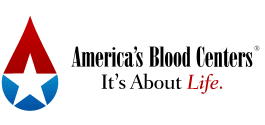Genetic Testing – What Does it Mean to us?
Blood centers are probably the largest providers of "genetic testing" for adults in the country. Of course, we do serological ABO and RhD typing on every sample. We can also test for many other antigen systems. Until recently this was a common way of doing paternity testing. We are doing ever more red cell genotyping and using these results to provide better patient care for patients with multiple antibodies, enriching our inventory of rare units. We screen for sickle cell trait in a substantial number of cases by both chemical and molecular methods. We are in the genetics world, whether we think of ourselves in that way or not.
And so, it is appropriate and important for us to follow these issues, make informed decisions, and be able to advocate for positions that will affect our donors, patients, operations, and the public health. Recent controversies in the world of newborn screening have implications for us that may inform our approach to these activities going forward.
In December, the Newborn Screening Saves Lives Reauthorization Act of 2014 was signed, providing continuing federal funds to states for newborn screening for a variety of diseases that can benefit from early intervention. The bill also requires that research involving the de-identified (not linked to the source) dried bloodspots left from this screening must be regarded as human subject research, requiring explicit parental consent. In the past, because such specimens were not identified, such research did not come under rules requiring explicit consent. The operational barriers posed by this explicit consent process can stymie important clinical and public health advances, as noted in this HHS advisory committee summary of the proposed law. While groups are working to develop appropriate language, these rules will only be in effect until the Common Rule is modified, which is in process. The Common Rule is the set of ethical and administrative rules under which most federally-funded, as well as most non-governmentally funded, research in this country is conducted.
Much of this may seem arcane to those centers that are not actively involved in relevant areas of research. However, it is clear that we are all doing things that may be affected by changes in the public and legal climate. FDA will soon (appropriately) require that we notify donors when we test for sickle cell status in the course of routine operations, and notify donors of relevant results - not yet universal in the blood community. We all need to be actively informed and involved in policy, as well as implementation decisions at the federal and other levels. It is an important aspect of keeping the public trust in our work.
Susan Rossmann, MD, PhD, Board President; [email protected]
Posted: 07/10/2015 | By: Susan Rossmann, MD, PhD, Board President | Permalink
< Back to list






